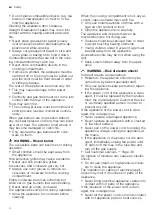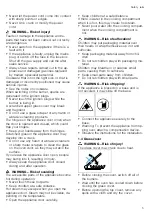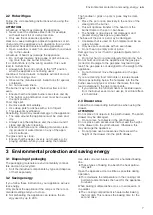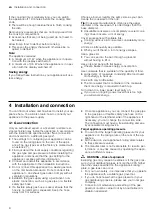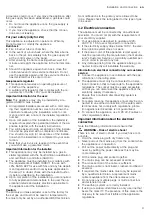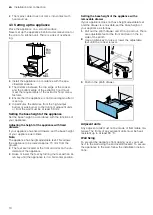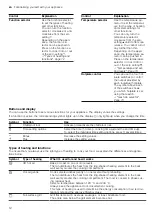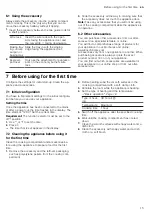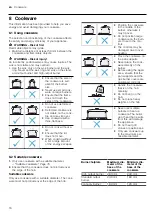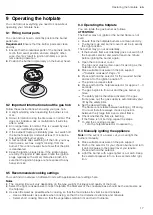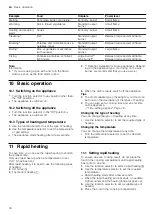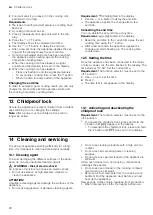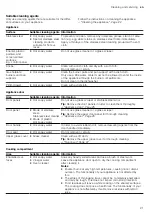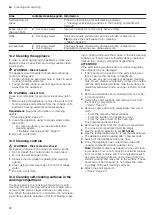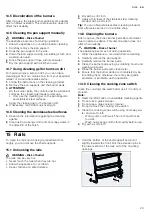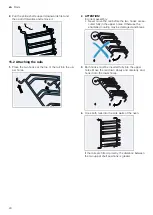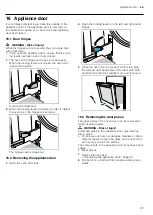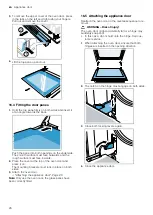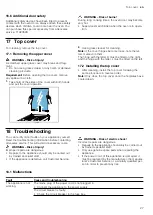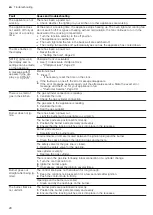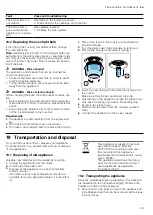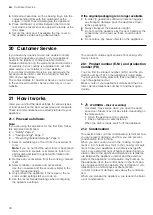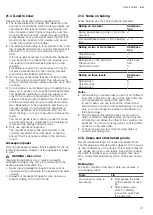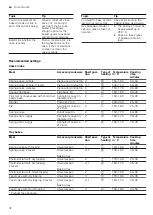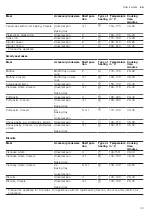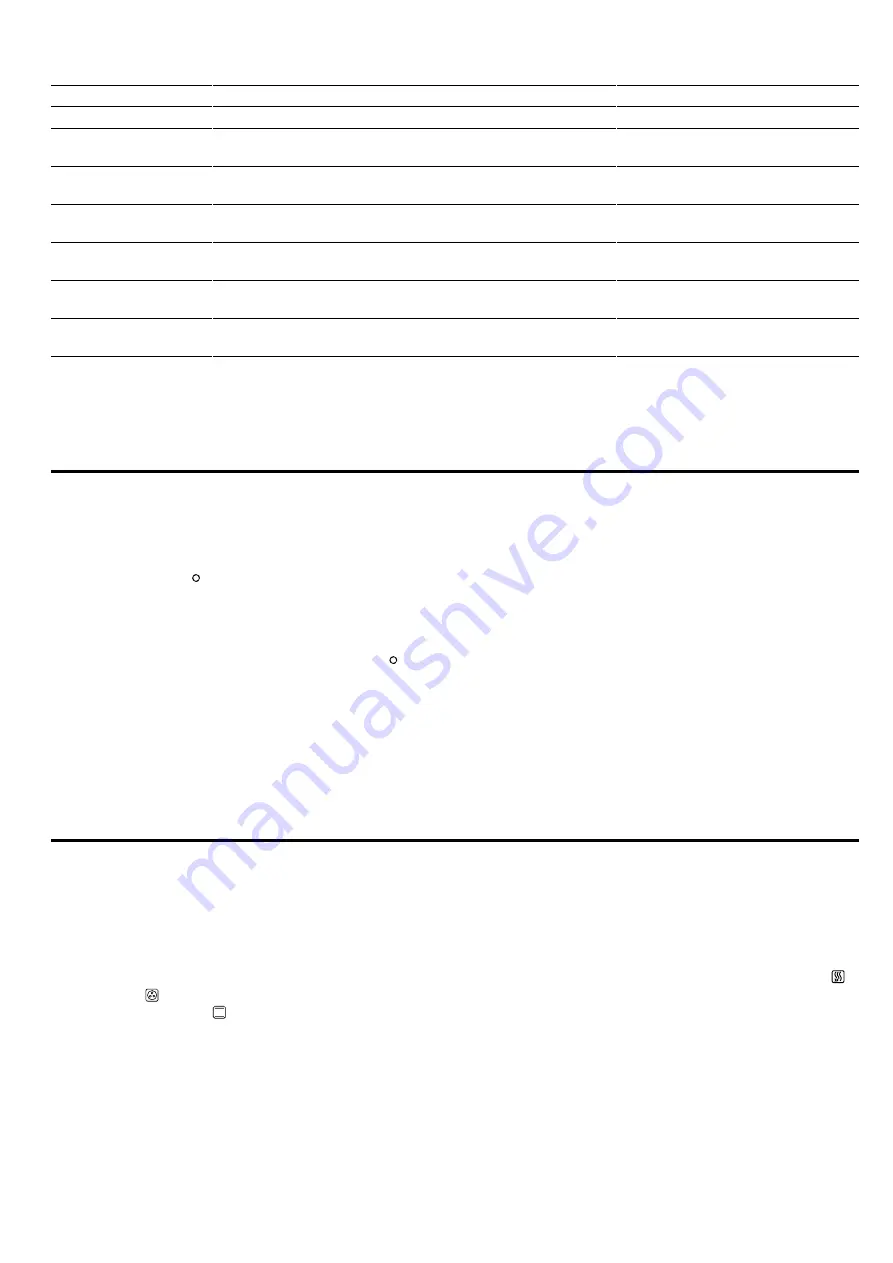
en
Basic operation
18
Example
Food
Hotplate
Power level
Melting
Chocolate, butter, margarine
Economy burner
Small flame
Warming
Stock, tinned vegetables
Standard output
burner
Small flame
Heating and keeping
warm
Soups
Economy burner
Small flame
Steaming*
Fish
Standard output
burner
Between large and small flame
Braising*
Potatoes and miscellaneous ve-
getables, meat
Standard output
burner
Between large and small flame
Boiling*
Rice, vegetables, meat dishes
(with sauces)
Standard output
burner
Large flame
Frying
Pancakes, potatoes, schnitzel,
fish fingers
Large burner**
Wok burner**
Between large and small flame
Between large and small flame
Note:
Information
¡
* If you are using a pan with a lid, turn the flame
down as soon as the food starts to boil.
¡
** Optional. Available for some appliances. Depend-
ing on the appliance type. (For frying on the wok
burner, we recommend that you use a wok.)
10 Basic operation
10.1 Switching on the appliance
▶
Turn the function selector to any position other than
the "Off" position .
a
The appliance is switched on.
10.2 Switching off the appliance
▶
Turn the function selector to the "Off" position .
a
The appliance is switched off.
10.3 Types of heating and temperature
1.
Use the function selector to set the type of heating.
2.
Use the temperature selector to set the temperature
or grill setting.
a
The appliance starts heating after a few seconds.
3.
When the dish is ready, switch off the appliance.
Tips
¡
The most suitable type of heating for your food can
be found in the description of the types of heating.
¡
You can also set a cooking time and an end time
on the appliance.
→
"Time-setting options", Page 19
Changing the type of heating
You can change the type of heating at any time.
▶
Use the function selector to set the required type of
heating.
Changing the temperature
You can change the temperature at any time.
▶
Turn the temperature selector to set the desired
temperature.
11 Rapid heating
To save time, you can use the rapid heating to shorten
the preheat time.
Only use rapid heat-up when a temperature of over
100 °C has been set.
After rapid heating, it is best to use the following types
of heating:
¡
3D hot air
¡
Top/bottom heating
11.1 Setting rapid heating
To ensure an even cooking result, do not place the
food in the cooking compartment until rapid heating
has come to an end.
1.
Use the function selector to select rapid heating .
2.
Use the temperature selector to set the required
temperature.
a
Rapid heating starts after a few seconds.
a
When the rapid heating process ends, an audible
signal sounds and the heating indicator goes out.
3.
Use the function selector to set a suitable type of
heating.
4.
Place the food in the cooking compartment.

